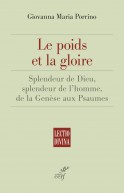Introduction à l'histoire de l'exégèse, III
Collection Initiations aux Pères de l'Église
204 pages - avril 2009
24,20€
« Fais-moi largesse de temps pour méditer les secrets de ta Loi... Car ce n'est pas en vain que tu as dicté tant de pages mystérieuses : ces forêts, n'ont-elles pas aussi leurs cerfs se reposant en elles, y retrouvant leurs forces, se promenant, paissant, s'y couchant, ruminant ? Seigneur, parachève-moi ; révèle-moi ces mystères. Oh ! ta parole est ma joie... » (Confessions XI, 2, 3.) Dans ce troisième tome, Bertrand de Margerie s'avance dans une autre forêt ombreuse : contigu à la Bible — habitat privilégié des cerfs-exégètes —, le vaste domaine des commentaires augustiniens des Écritures. Outre la pluralité de sens dans les intentions de Moïse, une lecture paulinienne du psaume 118, la théologie de l'Esprit-Saint et l'exégèse de « l'Amour qui est Dieu » selon Origène, l'auteur s'est spécialement intéressé à la genèse de l'enseignement d'Augustin relatif à l'Esprit-Saint, considéré comme la communion d'amour qui, dans la Trinité, unit le Père et le Fils. Mieux faire voir l'unité entre la Bible, la théologie, la spiritualité et la vie chrétienne, c'est-à-dire entre l'Écriture et la Tradition vivante de l'Église, telle est l'ambition des quatre volumes de l'« Introduction à l histoire de l'exégèse » que Bertrand de Margerie publiait au cours des années 1980 : l'œuvre ample d'Augustin d'Hippone donne, dans le présent volume, toute latitude à cette remarquable entreprise.
--
‘Grant me, then, a time for my meditations on the hidden things of your law... It is not your will that the deep secrets of all those pages should be written in vain. Those forests are not without stags in them, walking and feeding, resting and ruminating. Perfect me, O Lord, and reveal their secrets to me. Behold, your voice is my joy... (Confessions XI, 2, 3.) In this third tome, Bertrand de Margerie also enters into a shady woodland - contiguous to the Bible, a favourite habitat of exegetic animals- the vast domain of Augustine’s commentaries on the Scriptures. Apart from the plurality of meaning in Moses’ intentions, a Pauline reading of Psalm 118, the theology of the Holy Spirit and the exegesis of ‘The Love that is in God’ according to Origen, the author is particularly interested in the genesis of Augustine’s teaching on the Holy Spirit, considered as the communion of love which, in the Trinity, unites the Father and the Son. To better perceive the unity between the Bible, theology, spirituality and Christian life, i.e. between the Scriptures and the living Tradition of the Church; that is the ambition of these four volumes of ‘Introduction à l histoire de l'exégèse’ which Bertrand de Margerie published in the 1980s. In this third volume, the abundant work of Augustine of Hippo gives full leeway to such a remarkable enterprise.
--
‘Grant me, then, a time for my meditations on the hidden things of your law... It is not your will that the deep secrets of all those pages should be written in vain. Those forests are not without stags in them, walking and feeding, resting and ruminating. Perfect me, O Lord, and reveal their secrets to me. Behold, your voice is my joy... (Confessions XI, 2, 3.) In this third tome, Bertrand de Margerie also enters into a shady woodland - contiguous to the Bible, a favourite habitat of exegetic animals- the vast domain of Augustine’s commentaries on the Scriptures. Apart from the plurality of meaning in Moses’ intentions, a Pauline reading of Psalm 118, the theology of the Holy Spirit and the exegesis of ‘The Love that is in God’ according to Origen, the author is particularly interested in the genesis of Augustine’s teaching on the Holy Spirit, considered as the communion of love which, in the Trinity, unites the Father and the Son. To better perceive the unity between the Bible, theology, spirituality and Christian life, i.e. between the Scriptures and the living Tradition of the Church; that is the ambition of these four volumes of ‘Introduction à l histoire de l'exégèse’ which Bertrand de Margerie published in the 1980s. In this third volume, the abundant work of Augustine of Hippo gives full leeway to such a remarkable enterprise.
- Dimensions : 135x215x13
- ISBN : 9782204089067
- Poids : 270 grammes
Avec la collaboration de : Anne-Marie La Bonnardière
DANS LA CATÉGORIE
Comment tuer Jésus ? (poche)
Abus, violences et emprises dans la Bible
de Philippe Lefebvre
280 pages - oct. 2023







